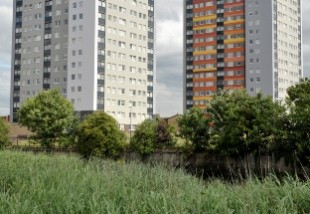Projects
Retrofitting London

The amount and scale of retrofit projects being carried out in the capital presents an opportunity to ensure that London’s buildings and residents are resilient to extreme weather and climate change.
Weather already has an impact on social housing that we can measure. Direct impacts such as building damage from flooding, and indirect impacts, such as damage to residents’ health from stress or extreme temperatures, are here to stay, and they are set to increase as a result of climate change.
Understanding how climate change will impact our homes, identifying priority risks and acting on them now can save landlords, residents and local services time, money and disruption. Coordinating action with existing refurbishments and maintenance offers opportunities for substantial efficiency savings for landlords.
On 17 February 2014, the London Climate Change Partnership published two short and easy to read factsheets that build upon our work in the field – including 2013′s Your Social Housing in a Changing Climate . The publications have been designed to provide guidance to busy housing professionals about the importance of integrating adaptation features within all retrofit projects.
The Business Case: Incorporating adaptation measures in retrofits outlines the financial case for adaptation – including a breakdown of costs and benefits, as well as identifying the best opportunities for funding.
A Checklist for Retrofits: Measures to incorporate when planning a retrofit highlights important ‘do’s and dont’s’ when planning a retrofit project. The checklist offers practical guidance and solutions to ensure that retrofits are resilient to extreme weather and climate change, and avoid the dangers of maladaptation.
LCCP is now working with the GLA’s RE:NEW and RE:FIT programmes in order to integrate adaptation issues in the programme’s various retrofit projects across London.